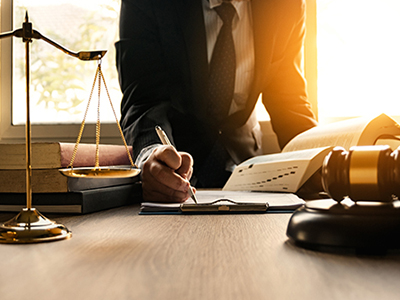 Cases involving equine law are often similar to commercial litigation. A lot of these people are buying and selling pretty high-end horses. Let’s say you spend $100,000 on a horse, only to find out that the horse is actually only worth $50,000, the horse doesn’t do what it’s supposed to, it won’t stop kicking, etc. You would sue under what’s called the “Florida Unfair and Deceptive Trade Practices Act,” which is a commercial act. Because of how equine law is set out in the state of Florida, it allows us to access the Unfair and Deceptive Trade Practices Act in order to get compensation for someone who’s sold a horse under false pretenses, or to defend someone from a lawsuit where someone is claiming that they’ve been sold a horse that is not worth what they paid for.
Cases involving equine law are often similar to commercial litigation. A lot of these people are buying and selling pretty high-end horses. Let’s say you spend $100,000 on a horse, only to find out that the horse is actually only worth $50,000, the horse doesn’t do what it’s supposed to, it won’t stop kicking, etc. You would sue under what’s called the “Florida Unfair and Deceptive Trade Practices Act,” which is a commercial act. Because of how equine law is set out in the state of Florida, it allows us to access the Unfair and Deceptive Trade Practices Act in order to get compensation for someone who’s sold a horse under false pretenses, or to defend someone from a lawsuit where someone is claiming that they’ve been sold a horse that is not worth what they paid for.
How Often Do These Cases End Up In Litigation? Are There Other Means Of Settling These Cases?
These are the kind of cases that we always try to send to mediation to try and get a reasonable settlement. But they’re very unlike personal injury or family cases, in that it’s hard to determine damages. A lot of times, you have to rely on your veterinary experts and your trainer experts for the merits and the value of your case.
Being Experienced In This Area Of The Law, Does Your Firm Have Access To Quality Experts Who Are Fair That You Can Use For Your Cases With Buyers Or Sellers?
We have access to veterinary experts and equine appraisers. There’s Equine Activity Liability Statute 773, which deals with the injury side, but I don’t work with that as much.
Do You Deal With The Contract Side Of Buying And Selling?
We do lease agreements, as well as purchase and sale contracts. We also do boarding agreements. We cover equine fraud under the Unfair and Deceptive Trade Practices Act.
What Should These Agreements Include To Protect The Buyer And The Seller? What Due Diligence Is Your Firm Able To Do To Ensure That The Sale Is Legitimate?
You’ll want to include everything in the bill of sale, including the horse’s ID number. Florida law requires the sale or purchase of any interest in a horse to be in writing, and the bill of sale needs to have specific information, such as the name and address, the breed registry status, the horse’s age, the date of sale, the purchase price, and owner statements basically confirming that they’re the lawful owner. They have to disclaim any warranties or representations. Everyone has to disclose their ownership interest in the horse.
For more information on Equine Law in Florida, an initial consultation is your next best step. Get the information and legal answers you are seeking by calling (561) 820-0010 today.

Call Me Now For A Strategic Consultation
(561) 820-0010